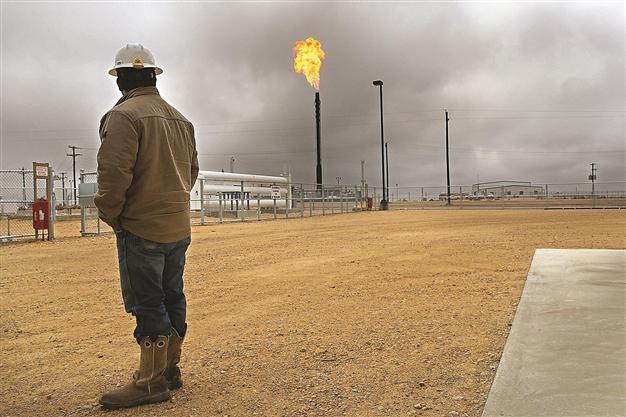EU to ‘reframe’ Russian energy ties in right time
Reuters

When the conditions are right, the EU will consider reframing the energy relationship with Russia based on a level playing field, says a draft of the EU Package. AFP Photo
The European Union will consider “reframing” energy relations with Russia based on market conditions when the time is right and for now will focus on its strategic gas partnership with Ukraine, a draft document shows.The European Commission, the EU executive, has set as a priority creating a single energy market, based on cross-border connections to improve security of supply and reduce dependence on Russia, which provides roughly one third of EU energy.
Russia’s long-standing energy relations with the EU and Ukraine, the main transit route for Russian gas to the EU, have deteriorated since Russia’s seizure of Ukraine’s Crimea region last year.
“When the conditions are right, the EU will consider reframing the energy relationship with Russia based on a level playing field in terms of market opening, fair competition, environmental protection and safety,” a draft of the Energy Union Package seen by Reuters says. For now, it says it will concentrate on upgrading “the strategic partnership on energy” with Ukraine, improving its gas transit infrastructure and energy efficiency to reduce Kyiv’s need for Russian gas.
In parallel with the fighting in eastern Ukraine, Kyiv and Moscow are at odds over unpaid gas bills.
Russia’s Gazprom last June halted supplies to Ukraine over the gas dispute, only resuming deliveries after the Commission brokered a deal that lasts until the end of March. So far, the Commission has not been able to start negotiating a new deal.
Underlining the energy tensions, Russia on Feb. 19 started supplying gas to rebel-held eastern Ukraine after Kyiv suspended deliveries, citing damage to the networks. The Commission is expected to publish its energy strategy on Feb. 18.
Apart from making the EU more resilient to any disruption, a robust energy union would increase competition and lower prices for consumers, the Commission says.
















